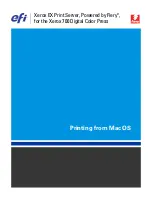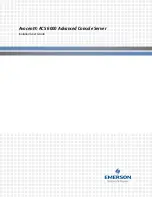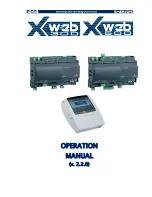
Quatech, Inc.
Airborne Enterprise Module Databook
30
7/15/2010
100-8080-120
Locate the antenna where there is a minimum of obstruction between the
antenna and the location of the Access Points. Typically Access Points are
located in the ceiling or high on walls.
Keep the main antenna’s polarization vertical, or in-line with the antenna of
the Access Points. 802.11 systems utilize vertical polarization and aligning
both transmit and receive antenna maximizes the link quality.
Even addressing all of the above factors, does not guarantee a perfect
connection, however with experimentation an understanding of the best
combination will allow a preferred combination to be identified.
8.6
Performance
Performance is difficult to define as the appropriate metric changes with each
application or may indeed be a combination of parameters and application
requirements. The underlying characteristic that, in most cases, needs to be
observed is the link quality. This can be defined as the bandwidth available over
which communication, between the two devices, can be performed, the lower the
link quality the less likely the devices can communicate.
Measurement of link quality can be made in several ways; Bit Error Rate (BER),
Signal to Noise (SNR) ratio, Signal Strength and may also include the addition of
distortion. The link quality is used by the radio to determine the link rate,
generally as the link quality for a given link rate drops below a predefined limit,
the radio will drop to the next lowest link rate and try to communicate using it.
The reciprocal is also true, if the radio observes good link quality at one rate it will
try to move up to the next rate to see if communication can be sustained using it.
It is important to note that for a given position the link quality improves as the link
rate is reduced. This is because as the link rate drops the radios Transmit power
and Receive sensitivity improve.
From this it can be seen that looking at the link rate is an indirect way of
assessing the quality of the link between the device and an Access Point. You
should strive to make the communication quality as good as possible in order to
support the best link rate. However be careful not to
over specify
the link rate.
Consider your applications bandwidth requirements and tailor your link rate to
optimize the link quality e.g. the link quality for a location at 6Mb/s is better than it
would be for 54Mb/s, if the application only needs 2Mb/s of data throughput, the
6Mb/s rate would provide a better link quality.
Aside from the radio performance, there are a number of other things that
contribute to the link quality; these include the items discussed earlier and
choices made when looking at the overall antenna gain. The antenna gain
contributes to the Equivalent Isotropically Radiated Power (EIRP) of the system.
This is part of an overall measurement of the link quality called link margin.











































